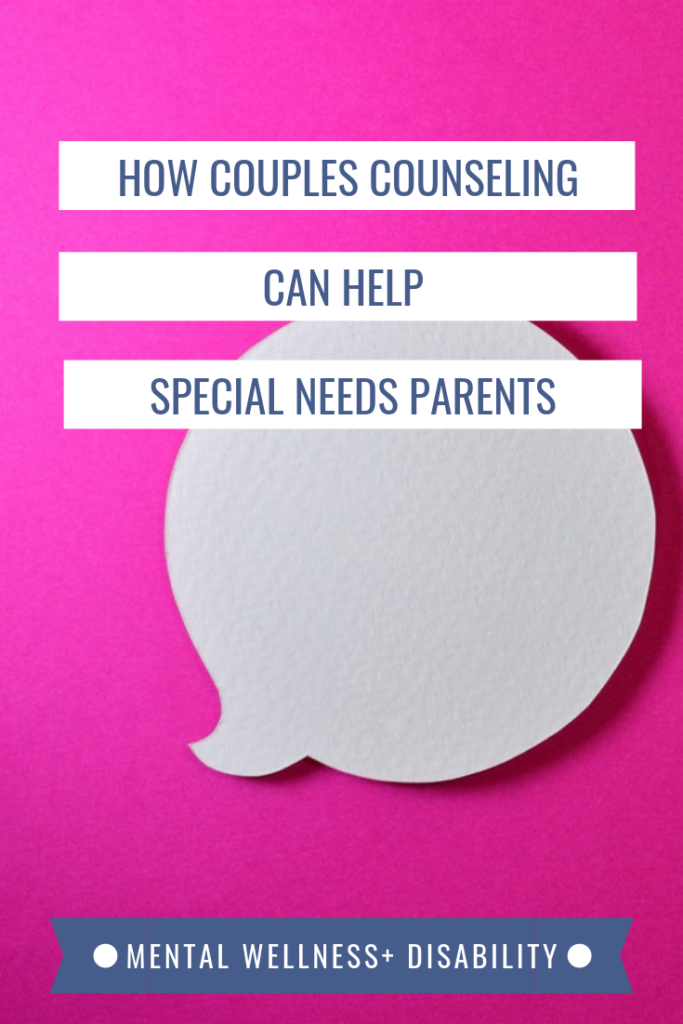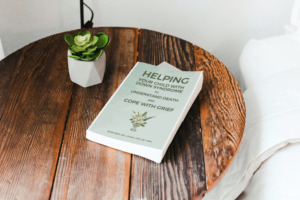The statistics you’ve heard are all bunk
Special Needs Parents are no more likely to divorce than other couples.
Let’s just get this out of the way up front, because if there’s anything I detest, its fear mongering.
There is a lot of hype that would have you believe that parents of kids with disabilities are more likely to have unhappy marriages and to divorce. You’ll see this myth perpetuated in popular media and, unfortunately, even in some research.
This is simply untrue.
Studies that show a higher divorce rate for parents of kids with disabilities are decades old. They used questionable methods to arrive at their conclusions. If you’re interested in a really thorough explanation of why the this myth is still so pervasive, and in what research has actually demonstrated, you can read this 2004 Developmental Disabilities Bulletin article that breaks it down in great detail.

The purpose of this post is not to make you think that your marriage is doomed without a therapist intervening
I don’t believe that it is. But, I wrote this post for couples raising kids with disabilities who are wondering if counseling might help. Many wonder if there’s a counselor who will understand their relationship in the context of raising a kid with disabilities.
Wanting to meet with a counselor who understands your specific needs is understandable. Military couples, for example, have some common challenges based on their circumstances. There are some familiar topics that might come up in couples counseling. These might include long distance relationship maintenance and PTSD response.
Likewise, couples raising kids with disabilities face some unique challenges. They often share similar fears and relationship patterns, even if their kids have different disabilities. Finding a therapist who truly gets what you as a couple are up against is key to moving together into the relationship you both want.
What makes couples counseling work for special needs parents
There are two things that really matter and one that doesn’t matter so much to keep in mind as you, a parent of a child with a disability, consider couples counseling.
Motivation matters.
For couples counseling to work, a couple must want to move forward together. They should have a shared vision of what their relationship could be.
If one partner has already decided that they will end the relationship, they aren’t motivated to make it work. Probably, they want couples counseling to be a ‘safe’ space to inform their partner of their desire to leave. No amount of counseling could ever ‘save’ this marriage.
Timing matters.
Dr. John Gottman has found that couples wait an average of six years after problems start before seeking professional help to heal their relationship. Six years of pent up frustration and resentment will not be undone in one session of counseling.
Timing matters.
It matters how soon you begin counseling after problems arise, and it also matters how long you are willing to devote to counseling.
For those wondering specifically how couples counseling can help Special Needs parents, it’s important to note that timing may be especially critical for these couples.
Keeping in mind that I’m the lady who’s not into fear mongering, it is true that couples raising kids with ADHD and Autism are more likely to divorce before their child is eight years old. After that age, the divorce rate drops.
It seems that there’s a critical time frame during which to be proactive if a couple is considering counseling. That time is when your child is young, as you notice patterns in your relationship that are unsettling.
Credentials don’t matter so much.
Research has shown time and time again that the credentials of a therapist matter less than the ‘goodness of fit’ between each partner and the counselor.
Of course, you want to be sure that you’re seeing someone who is licensed to provide therapy!
But whether that person is a Psychologist, Clinical Social Worker, Marriage and Family Therapist, or Professional Counselor matters less than how you feel when you meet with them.
It’s more important to have three people committed to working together toward a shared vision of what the marriage could be. This matters more than an endless string of credentials behind the therapist’s name, because people connect with people, not with certifications!
This is purely anecdotal, because I’ve not seen any research studies that address this. I’ve found in my own practice that the parents I work with prefer a therapist who is familiar with the common struggles and realities facing them as special needs parents.
Not having to explain what an IEP, or AAC, or stimming is can be a relief. You’ve found someone who literally speaks your language.
However, a quality couples’ counselor, whether they have experience helping Special Needs parents or not, is going to make it their mission to understand the challenges you face, and to give you hope and real solutions that can help you to improve your relationship.
Common issues that special needs parents wish to address in couples counseling
Couples raising kids with disabilities face some distinctive challenges. While every couple is unique, these are some of the more common issues that Special Needs Parents may find it helpful to address in counseling together. A good couple’s counselor, who you feel a good fit with, will be able to help you navigate these challenges and grow stronger as result.
Imbalance in caretaking.
One parent feels they’re shouldering the full burden of caring for their child with disabilities, while the other often feels they’ve lost their partner to full-time parenthood.
Feeling isolated.
Withdrawing from relationships is a common reaction to feeling overwhelmed by raising a child with disabilities. Often, parents find that they are withdrawing from each other as well, even as they are ‘working together’ to raise their children. There are some exercises couples can do at home to increase their intimacy, but if the divide has become too great, they may wish to get help from a counselor to reconnect with each other.
Feeling that there’s no time.
Related to isolation, the feeling that there’s not enough time to meet all of their responsibilities can overwhelm even the most resilient couples. Maybe you’re feeling that you have no time and energy to do what’s expected of you. It may help to take a really critical look at what you’re expecting from yourself, as individuals and as a couple. If you still find that you’re feeling that you can’t fit everything into your day, it may help to have a professional listener by your side as you evaluate what’s not working.
Being paralyzed by fear of what the future will bring.
Many couples know they need to have a plan for the future. They say that one day they’ll get around to setting up Special Needs Trusts, ABLE accounts, guardianship, etc. Yet, year after year, they make no progress towards these goals. With a couple’s counselor, it can be helpful to unpack what’s actually keeping you from putting plans in place. Often times, its fear of what the future will bring for your children and for you. As much as estate planning needs to get done, it is a symptom of the real problem, the fear. Once you address your worries about the future, it becomes easier to tackle your ‘to-do’ list.
Anger & Denial.
For many people, adjusting to their child’s diagnosis is extremely difficult. They feel guilt, anger, and ultimately denial. These feelings becomes magnified when one spouse has accepted their child’s special needs and the other hasn’t. Addressing this with a couple’s counselor can help guarantee that each partner really listens to the other one. Working with a counselor can help couples stay stay connected in their relationship in spite of their differing perspectives.
Sibling issues.
Many parents of kids with disabilities feel guilt for how they’re parenting their other children. You question if you’re asking too much of your child. And you worry that one day you’ll have to ask them to make even greater sacrifices.
Feeling powerless to affect real change in your life and in your marriage.
Sometimes parents whose children have disabilities begin to question if they have true control over their lives. This can start to impact how you view your relationships. It can leave you feeling helpless to make positive changes in your relationship with your partner.
I hope it helps to have some of the facts about marriage, divorce, and raising kids with disabilities. I also hope that this post was helpful to you if you’re a Special Needs Parent considering marriage counseling.
You’re not alone in the struggles that you face, or in wondering if it could help to have some professional help in maintaining your marriage. If you think this is the right next step for you and your partner, I sincerely hope you will take it.












